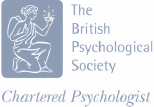Latest Videos | Latest Articles
1. What is Obsessive-Compulsive Disorder?
Most people tend to double check certain things, such as making sure that the iron or stove is turned off before leaving the house, or that the front door is locked. However, for some people checking once, is not enough. People who suffer from obsessive-compulsive disorder (OCD), experience intrusions, unwelcomed thoughts, images, urges, or doubts that are regularly repeated in their minds. These obsessions are often of a distressing nature and can be so embarrassing or horrible that they are kept secret from others. Intrusive obsessions often result in increased anxiety and the development of ritualistic behaviour or compulsions. In an attempt to reduce the distress caused by the obsessive thoughts, suffers of OCD commonly engage in repetitive compulsions such as repeating a specific phrase or behaviour. Over time, people with OCD tend to develop an increased number of obsessions and compulsions that eventually end up controlling them and gets in the way of daily life.
2. Causes, signs and symptoms
Current research suggests that OCD can be inherited and that as a result it commonly runs in families. This genetic predisposition sets the stage for OCD to occur, however, it has also been suggested that stress, environmental factors and major life transitions may all play an important part in the development of OCD. People with OCD have repeated images or thoughts that cause distress. Common obsessions include themes about harming the self or others, unwanted blasphemous thoughts, unwanted sexual thoughts, obsessive thoughts about germs or dirt, and obsessive thoughts about being overly tidy. In addition to their obsessions, individuals with OCD commonly do the same rituals again and again. Typical examples of rituals completed include locking and unlocking doors, counting, washing hands, keeping unneeded items, checking, praying or repeating a specific phrase, word or behaviour over and over again. Common in all individuals with OCD is that they struggle to control their unwanted thoughts or behaviours; that they do not get any pleasure from repeating their obsessions or rituals apart from a brief relief from the anxiety that they cause; and that they spend a minimum of one hour a day engaging with obsessions and completing rituals that come in the way of daily life and cause distress.
3. Diagnosis
To gain a diagnosis of OCD one has to fulfill a number of criteria. As mentioned above, there must be a presence of obsessions, compulsions or both on a regular basis. Obsessions must commonly have been attempted to be ignored, suppressed or neutralised and rituals must commonly be conducted with the view to prevent or reduce anxiety or distress, or prevent a dreaded event or situation. The obsessions or compulsions are time-consuming (minimum 1 hour per day) and must cause clinically significant distress or impairments. The obsessive-compulsive symptoms must not be attributed to the physiological effects of substances or other medical conditions and the distress and disturbances experienced, cannot be better explained by the symptoms of another mental health disorder.
4. OCD Treatment
OCD is generally treated with psychotherapy, medication or both. In some cases self-help books are helpful for teaching different ways to cope with obsessions and compulsions. According to the National Institute for Health Care Excellence (NICE) the recommended psychotherapy for OCD is Cognitive Behavioural Therapy (CBT). This is a type of therapy that focuses on the connection between thoughts, emotions and behaviour and teaches the person new ways of thinking and behaving that may help to reduce the anxiety experienced as a result of intrusive obsessions, and reduce the need to engage in compulsive behaviour. When treating OCD there is a strong emphasis on the behavioural element of CBT, also known as Exposure Response Prevention. ERP allows the individual to confront obsessions and resist urges to engage in compulsive behaviour, with the aim being that over time the individual will feel less anxious about their obsessions and be less likely to engage in compulsive behaviour. OCD can also be treated through the use of medication and your GP will be able to provide you with guidance on what medication to take. At present two types of medications are commonly used to treat OCD – antidepressants and anti-anxiety medications. Some of these medications start working immediately whilst others take several weeks to start working. Common to all medication is that it may cause side effects and some medication should not be taken for prolonged periods of time.










